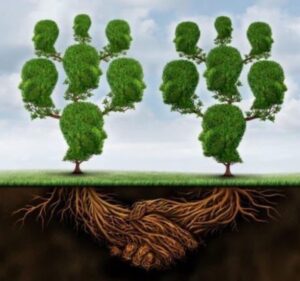 Having been active in social justice movements since the 1960s, I would’ve liked for us to be further along than we are now. You might imagine that I’m a bit fatigued, even disheartened, six decades later. To the contrary, I’m as fired up as ever. I’m especially inspired by young activists around the world who are tackling myriad interrelated issues in new, dynamic, exciting ways.
Having been active in social justice movements since the 1960s, I would’ve liked for us to be further along than we are now. You might imagine that I’m a bit fatigued, even disheartened, six decades later. To the contrary, I’m as fired up as ever. I’m especially inspired by young activists around the world who are tackling myriad interrelated issues in new, dynamic, exciting ways.
It’s called intersectional organizing, integrating, among much else: calls for an end to violent conflicts, enlivening the climate change debate, addressing gender inequality, demands for economic equity, actions for racial justice, demonstrations for LGBTQ rights, protests for gun control—all parts of a unified fervent appeal for a more inclusive, sustainable world. I had extraordinary mentors who taught me early on that sexism, racism, classism, militarism and environmental degradation must be tackled in tandem. I learned that we have strength in numbers.
I think about how this vital lesson plays out in the business world in multiple dimensions. Internally, we so often lose the synergy between business lines or among regions because we simply choose to compete rather than to cooperate. Too many view their work environment as a zero-sum game: If you win, I lose; there’s just a finite amount, and if you take a slice of the pie, my share of it becomes smaller.
If you can rise above this constricting perspective, you will actually find that cooperation enhances the work of each and every participant while yielding greater results for the larger entity. A 2017 Stanford University study found that employees who “worked collaboratively were able to stay with a task 64% longer than those who worked independently.” In 1995, when Howard Behar became president of Starbucks, he encouraged team members to successfully collaborate, which led to improved customer satisfaction.
I’m writing a book, The Power of Connectedness, with a foreword by the late Nobel Peace Laureate Desmond Tutu. It’s premise is that cooperation not only increases productivity and efficiency but also makes people happier and healthier. What South Africans call Ubuntu or “I am because you are.” We are social beings: The strength of our relationships with others—personal and professional—is a leading indicator of longer lives. Our brains are wired to connect. That’s why social networks are so compelling: For all the downsides of being glued to our devices (I speak from personal experience as an addict), they also allow us to stay in touch with those we care about wherever they may be in the world—and certainly with our work colleagues in far-flung locations.
Then there’s the broader realm of external collaboration. Think about open source initiatives: Initially, many folks were wary that their ideas would be “stolen.” But that’s changing. In the late 1990s, IBM dipped its feet into open source, learned quickly about its many benefits and now champions it in enlightened self-interest. And whatever you may think about the size and impact of Amazon, with all its pros and cons, they’ve launched more than 1,200 open-source projects on GitHub.
Doctors, hospitals and pharmaceutical companies have made tremendous breakthroughs in healthcare. In 2014, I brought a group of senior executives from a manufacturing company to Silicon Valley for several site visits. At bioCurious, we were shown the types of scintillating scientific breakthroughs they were creating with what they call “citizen scientists” contributing to professional scientific research on hard-to-cure diseases.
We also went to the Institute for the Future where they were advancing and disrupting the “ways things were,” including creating open working areas that were more horizontal and equitable. But probably the most jaw-droppingly exciting trip was to visit a bunch of hackers working in a chaotic loft. They were trying to connect the largest possible number of people in the world to crack seemingly unsolvable problems.
Until that moment, I viewed the term “hacker” as derogatory (even with the surname Hack!). But spending a few hours with them made me completely switch to being pro-hacker as I experienced the power of what they’d already achieved, connecting ordinary folks who had brilliant ideas on how professionals could accomplish their goals. So how does all of this apply to you and your work environment?
In our rapidly evolving world, I encourage you to open things up, be more collegial with colleagues within your enterprise and be more proactive in outreach to those outside of it. You might be delightfully surprised at how much happier, healthier and more productive you can be at whatever endeavor you’re involved with.
——
A version of this was published March 26, 2024 on Forbes Councils where beCause Global Consulting CEO Nadine Hack is a regular contributor.

